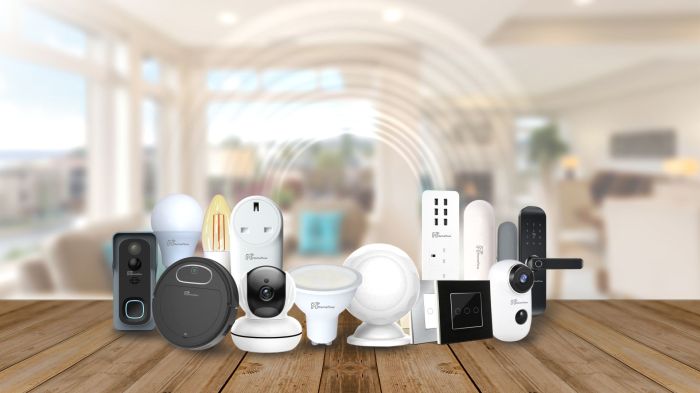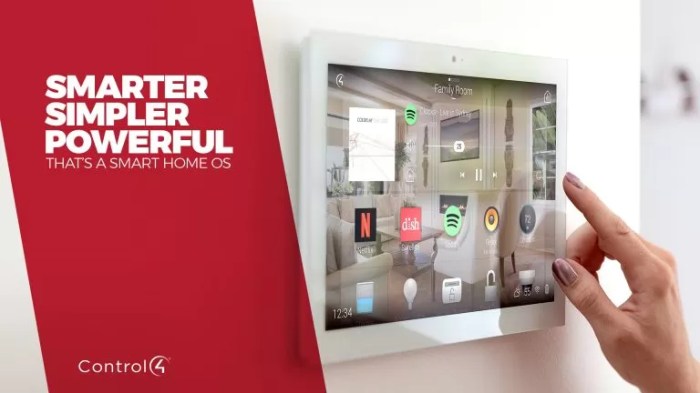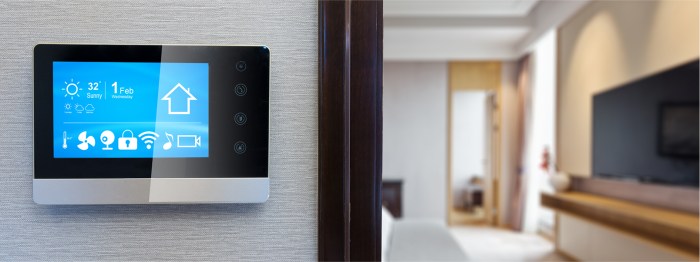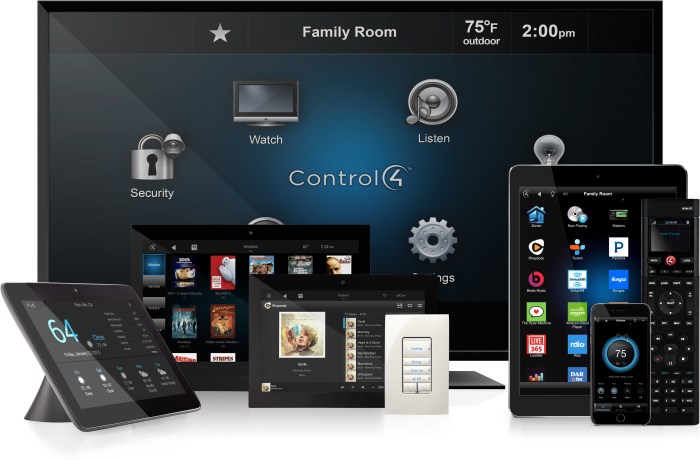In the realm of home automation, Singapore stands as a beacon of innovation and technological advancement. Smart home systems have revolutionized the way we interact with our living spaces, offering unprecedented convenience, energy efficiency, and security. This comprehensive guide delves into the intricacies of smart home system pricing in Singapore, providing valuable insights into the factors that shape costs and the key considerations for discerning homeowners.
From market dynamics to installation nuances, this guide unravels the complexities of smart home system pricing, empowering homeowners with the knowledge to make informed decisions. Whether you’re a tech-savvy enthusiast or a homeowner seeking a seamless integration of technology into your daily life, this guide will illuminate the path towards a smarter, more connected home.
Market Overview
The smart home system market in Singapore is witnessing substantial growth, driven by the increasing awareness of home automation benefits, government initiatives, and the rising adoption of IoT devices. Key players in this market include global tech giants like Google, Amazon, and Samsung, along with local companies like Actron and Converge.
Market Statistics and Trends
According to a recent study by Statista, the Singapore smart home market is projected to reach USD 1.1 billion by 2027. This growth is attributed to factors such as the increasing disposable income of Singaporeans, the rising popularity of smart home devices, and the government’s efforts to promote smart city initiatives.
Factors Influencing Price
The pricing of smart home systems in Singapore is influenced by several key factors, including technology, features, brand reputation, and installation and maintenance costs.
Technology plays a significant role in determining the cost of a smart home system. More advanced systems with cutting-edge features and capabilities tend to be priced higher than basic systems. For example, systems that offer voice control, facial recognition, and AI-powered automation typically command a premium.
Features
The features and functionalities offered by a smart home system also impact its price. Systems with a wider range of features, such as lighting control, thermostat control, security and surveillance, and entertainment integration, are generally more expensive than systems with limited features.
Additionally, the quality and performance of the components used in the system can also affect the overall cost.
Brand Reputation
Brand reputation is another important factor that influences the pricing of smart home systems. Established brands with a strong track record of quality and reliability often charge a premium for their products. These brands have invested heavily in research and development, marketing, and customer support, which is reflected in the higher prices of their systems.
Installation and Maintenance Costs
Installation and maintenance costs can also contribute to the overall price of a smart home system. The complexity of the system and the number of devices being installed can affect the installation costs. Additionally, ongoing maintenance and support services, such as software updates and repairs, can add to the long-term cost of ownership.
Types of Smart Home Systems
In Singapore, a variety of smart home systems are available, ranging from basic DIY kits to comprehensive, professionally installed solutions. Each type offers unique features and benefits, catering to different needs and budgets.
The key types of smart home systems include:
DIY Smart Home Systems
DIY smart home systems are ideal for those who enjoy tinkering with technology and prefer a cost-effective solution. These systems typically consist of individual smart devices, such as smart plugs, bulbs, and thermostats, that can be controlled through a smartphone app.
DIY systems offer flexibility and allow users to customize their smart home setup according to their preferences.
Hub-Based Smart Home Systems
Hub-based smart home systems provide a more centralized approach to smart home control. They consist of a central hub that connects to various smart devices and allows users to manage them through a single app. Hub-based systems offer greater integration and automation capabilities compared to DIY systems, making them suitable for those who want a more comprehensive smart home experience.
Professionally Installed Smart Home Systems
Professionally installed smart home systems offer the highest level of customization and integration. These systems are typically designed and installed by certified professionals, ensuring seamless integration of various smart devices and systems. Professionally installed systems provide advanced features such as multi-room audio, security cameras, and home automation scenarios, making them ideal for those who demand the ultimate smart home experience.
Pricing Ranges of Smart Home Systems
The pricing of smart home systems in Singapore varies depending on the type of system, the number of devices, and the installation costs. DIY smart home systems typically range from a few hundred dollars to a few thousand dollars, while hub-based systems can cost between a few thousand dollars to tens of thousands of dollars.
Professionally installed smart home systems can range from tens of thousands of dollars to hundreds of thousands of dollars, depending on the complexity of the system.
Features and Functionality

Smart home systems in Singapore offer a wide range of features and functionalities that contribute to their value and pricing. These features can be broadly categorized into three main groups: convenience, security, and energy efficiency.
Convenience features are designed to make everyday tasks easier and more convenient. They include:
- Remote control of lights, appliances, and thermostats
- Voice control using smart speakers
- Automated schedules and routines
- Motion-activated sensors for lighting and security
Security features provide peace of mind and protection for homeowners. They include:
- Door and window sensors
- Motion detectors
- Security cameras
- Remote monitoring and alerts
Energy efficiency features help homeowners save money on their energy bills. They include:
- Smart thermostats
- Energy-efficient lighting
- Smart plugs for monitoring and controlling energy usage
- Automated energy-saving routines
Innovative Features
Some smart home systems offer innovative features that command a premium price. These features include:
- Facial recognition for access control
- Smart home hubs that integrate multiple devices and services
- Advanced AI-powered features such as predictive maintenance and personalized recommendations
- Integration with other smart devices such as smart TVs and smart cars
Installation and Maintenance Costs

Smart home systems require professional installation and ongoing maintenance to ensure optimal performance and longevity. Installation costs can vary depending on several factors, including the complexity of the system, the size of the property, and the number of devices being installed.
Typically, the installation of a basic smart home system in Singapore can range from S$1,000 to S$5,000. More advanced systems with extensive features and integrations may incur higher installation costs, potentially reaching up to S$10,000 or more.
Factors Influencing Installation Costs
- System Complexity: The more complex the smart home system, the higher the installation costs. Systems with numerous devices, intricate wiring, and advanced features require more time and expertise to install.
- Property Size: Larger properties with multiple rooms and outdoor areas typically require more devices and wiring, leading to higher installation costs compared to smaller apartments or condos.
- Number of Devices: The number of smart devices being installed significantly impacts installation costs. Each device requires individual setup, configuration, and integration, contributing to the overall installation time and cost.
- Existing Infrastructure: Properties with existing smart home infrastructure or compatible wiring may have lower installation costs compared to those requiring extensive rewiring or upgrades.
Ongoing Maintenance Costs
Smart home systems require ongoing maintenance to ensure proper functioning and security. Maintenance costs can include software updates, system monitoring, troubleshooting, and occasional repairs. These costs can vary depending on the system’s complexity and the service contract with the installation company.
Regular maintenance can help extend the lifespan of the system, prevent unexpected breakdowns, and ensure optimal performance.
Smart Home System Brands
The Singaporean smart home system market is dominated by several leading brands, each offering unique features and value propositions.
Global Smart Home System Brands
Google Nest: Google’s smart home ecosystem includes smart speakers, thermostats, security cameras, and more. Nest devices are known for their ease of use, seamless integration with Google Assistant, and strong security features. Amazon Alexa: Amazon’s smart home platform revolves around the Alexa voice assistant.
Alexa-compatible devices include smart speakers, smart plugs, light bulbs, and various other smart home gadgets. Alexa’s strength lies in its vast ecosystem of supported devices and its ability to control multiple devices simultaneously. Apple HomeKit: Apple’s smart home system is designed to work seamlessly with Apple devices.
HomeKit-compatible devices include smart thermostats, light switches, door locks, and more. HomeKit’s main advantage is its tight integration with Apple’s ecosystem, ensuring a smooth and secure user experience.
Regional Smart Home System Brands
Xiaomi: The Chinese tech giant Xiaomi offers a wide range of affordable smart home devices, including smart speakers, security cameras, smart bulbs, and more. Xiaomi’s strength lies in its competitive pricing and its extensive ecosystem of interconnected devices.
Samsung SmartThings: Samsung’s smart home platform is known for its compatibility with a wide range of devices from different manufacturers. SmartThings-compatible devices include smart TVs, refrigerators, washing machines, and various other smart home gadgets. Samsung’s strength is its ability to connect and control a diverse range of devices within a single ecosystem.
Schneider Electric Wiser: Schneider Electric’s Wiser smart home system is designed for homeowners who prioritize energy efficiency and sustainability. Wiser devices include smart thermostats, light switches, and energy monitoring systems. Schneider Electric’s strength lies in its expertise in energy management and its commitment to sustainability.
Pricing Strategies and Value Propositions
The pricing strategies and value propositions of smart home system brands vary depending on their target audience and product offerings. Some brands, like Google Nest and Amazon Alexa, offer a wide range of affordable devices to appeal to budget-conscious consumers.
Other brands, like Apple HomeKit and Samsung SmartThings, focus on providing a premium experience with high-quality devices and robust features, commanding higher prices.Ultimately, the best smart home system brand for a particular consumer depends on their individual needs, preferences, and budget.
Budget Considerations

Establishing a budget for a smart home system in Singapore is crucial. Consider both upfront costs and long-term expenses, including installation, maintenance, and potential upgrades. Wisely allocating funds ensures an optimal smart home experience that aligns with your needs and financial capabilities.
Upfront Costs
- Smart Home Devices: Costs vary depending on the type, brand, and features. Prioritize essential devices and gradually expand your system as needed.
- Installation: Professional installation may be required for certain devices. Factor in installation fees and ensure proper integration with your home’s electrical and network infrastructure.
- Subscriptions and Services: Some smart home systems require ongoing subscriptions or services for features like remote access, cloud storage, or security monitoring. Consider these recurring costs when budgeting.
Long-Term Expenses
- Maintenance: Smart home devices may require regular maintenance or repairs. Allocate a portion of your budget for ongoing upkeep to ensure optimal performance and longevity.
- Energy Consumption: Smart devices can impact your energy usage. Consider energy-efficient devices and monitor your consumption to minimize additional costs.
- Future Upgrades: Technology advances rapidly. Plan for potential upgrades or expansions to your smart home system in the future. Set aside a budget to accommodate these enhancements.
Tips for Allocating Funds
- Prioritize Needs: Identify essential smart home features and allocate funds accordingly. Focus on devices that provide tangible benefits and enhance your daily life.
- Set Realistic Expectations: Understand that a fully automated smart home may not be achievable immediately. Start with a modest setup and gradually expand as your budget and needs evolve.
- Consider DIY Options: If you’re comfortable with DIY projects, consider self-installation or basic maintenance tasks. This can save on professional fees.
DIY vs. Professional Installation

Installing a smart home system can be done by do-it-yourself (DIY) or by hiring a professional. Both options have advantages and disadvantages, and the choice depends on factors like budget, technical expertise, and personal preferences.
Cost Implications
DIY installation can save money on labor costs, as the homeowner is responsible for the entire process. However, it may require additional expenses for tools, materials, and potential mistakes that could lead to costly repairs. Professional installation, on the other hand, typically involves higher upfront costs but offers the peace of mind that the system is set up correctly and efficiently.
Technical Expertise
DIY installation requires a certain level of technical expertise, including knowledge of electrical wiring, networking, and smart home system programming. If a homeowner lacks these skills, professional installation is the safer and more reliable option. Professionals have the necessary training and experience to handle complex installations, ensuring the system functions seamlessly.
Recommendations
For homeowners with limited technical expertise or those who prefer a hassle-free experience, professional installation is the recommended choice. For those comfortable with DIY projects and have the necessary skills, DIY installation can be a cost-effective option. However, it’s important to carefully consider the complexity of the system and potential risks before attempting a DIY installation.
Return on Investment

Smart home systems in Singapore offer substantial return on investment (ROI) through cost savings, energy efficiency, enhanced property value, and increased convenience.
Cost Savings and Energy Efficiency
Smart home systems enable significant cost savings by optimizing energy consumption. Automated lighting, heating, and cooling systems adjust based on occupancy and preferences, reducing energy waste. Smart appliances monitor usage patterns and operate efficiently, lowering utility bills. These systems also provide real-time energy usage data, empowering homeowners to make informed decisions and further reduce costs.
Property Value Enhancement
Installing a smart home system can increase a property’s value. Potential buyers are attracted to homes equipped with modern technology that offers convenience, security, and energy efficiency. Smart home features can also enhance curb appeal, making a property more desirable in the real estate market.
Increased Convenience and Comfort
Smart home systems provide unparalleled convenience and comfort. Voice-activated controls, remote access, and automated routines simplify daily tasks and enhance the overall living experience. Smart home systems also offer peace of mind, as homeowners can monitor and control their homes remotely, ensuring safety and security.
Future Trends
The smart home system market in Singapore is poised for continued growth and innovation. Emerging trends and technologies are shaping the future of smart homes, influencing pricing, consumer preferences, and the overall landscape of the industry.
Integration of Artificial Intelligence (AI) and Machine Learning (ML)
AI and ML are revolutionizing smart home systems, enabling them to learn user preferences, anticipate needs, and automate tasks more efficiently. These technologies allow smart homes to become more intuitive, personalized, and responsive, enhancing the user experience and convenience.
Increased Focus on Energy Efficiency and Sustainability
Smart home systems are becoming increasingly integrated with renewable energy sources and energy-saving technologies. This trend is driven by rising energy costs and growing concerns about environmental sustainability. Smart homes can optimize energy usage, reduce carbon footprint, and provide homeowners with real-time insights into their energy consumption.
Expansion of Smart Home Ecosystems
Smart home ecosystems are expanding to include a wider range of devices and appliances, creating a seamlessly connected home environment. This includes integration with smart lighting, thermostats, security systems, and entertainment devices. The growing interoperability between different smart home brands and platforms is making it easier for homeowners to build a customized and cohesive smart home system.
Growing Popularity of Voice Control and Gesture Recognition
Voice control and gesture recognition technologies are gaining traction in smart home systems, offering users a more natural and intuitive way to interact with their devices. This trend is driven by the popularity of virtual assistants like Amazon Alexa, Google Assistant, and Apple Siri.
Voice control and gesture recognition make smart homes more accessible and user-friendly, especially for those with limited mobility or visual impairments.
Emphasis on Data Security and Privacy
As smart home systems become more connected and collect more personal data, concerns about data security and privacy are rising. Consumers are increasingly demanding robust security measures to protect their data from unauthorized access and cyberattacks. Smart home manufacturers and service providers are investing in advanced security features and protocols to ensure the privacy and integrity of user data.
Recommendations for Staying Up-to-Date with the Latest Advancements
- Read industry blogs and news websites dedicated to smart home technology.
- Attend smart home conferences and exhibitions to learn about the latest products and trends.
- Follow smart home brands and influencers on social media to stay informed about new releases and updates.
- Subscribe to email newsletters from smart home companies to receive updates on promotions, discounts, and new product launches.
Outcome Summary
As the smart home landscape continues to evolve, the possibilities for seamless automation and enhanced living experiences are boundless. By understanding the factors influencing pricing and the intricacies of different smart home systems, homeowners in Singapore can make informed decisions that align with their unique needs and budget.
Embracing the transformative power of smart home technology not only elevates convenience and comfort but also paves the way for a sustainable and energy-efficient future.
Common Queries
What are the key factors that influence smart home system pricing in Singapore?
The primary factors that shape smart home system pricing include technology advancements, feature sets, brand reputation, installation complexity, and ongoing maintenance costs.
What are the different types of smart home systems available in Singapore?
Smart home systems in Singapore encompass various types, including wired systems, wireless systems, DIY systems, and professionally installed systems. Each type offers unique features and benefits, catering to diverse homeowner preferences and budgets.
How can I determine the right budget for a smart home system in Singapore?
Budgeting for a smart home system involves considering upfront costs for equipment and installation, as well as ongoing expenses for maintenance and energy consumption. It’s essential to strike a balance between affordability and the desired level of functionality.
What are the advantages of DIY smart home system installation compared to hiring a professional?
DIY installation offers cost savings and the satisfaction of completing the project independently. However, hiring a professional ensures expert setup, minimizes installation errors, and provides ongoing support, potentially saving time and hassle in the long run.
How can smart home systems enhance property value and convenience?
Smart home systems can increase property value by enhancing security, energy efficiency, and overall comfort. They provide homeowners with remote control and automation capabilities, leading to a more convenient and connected living experience.